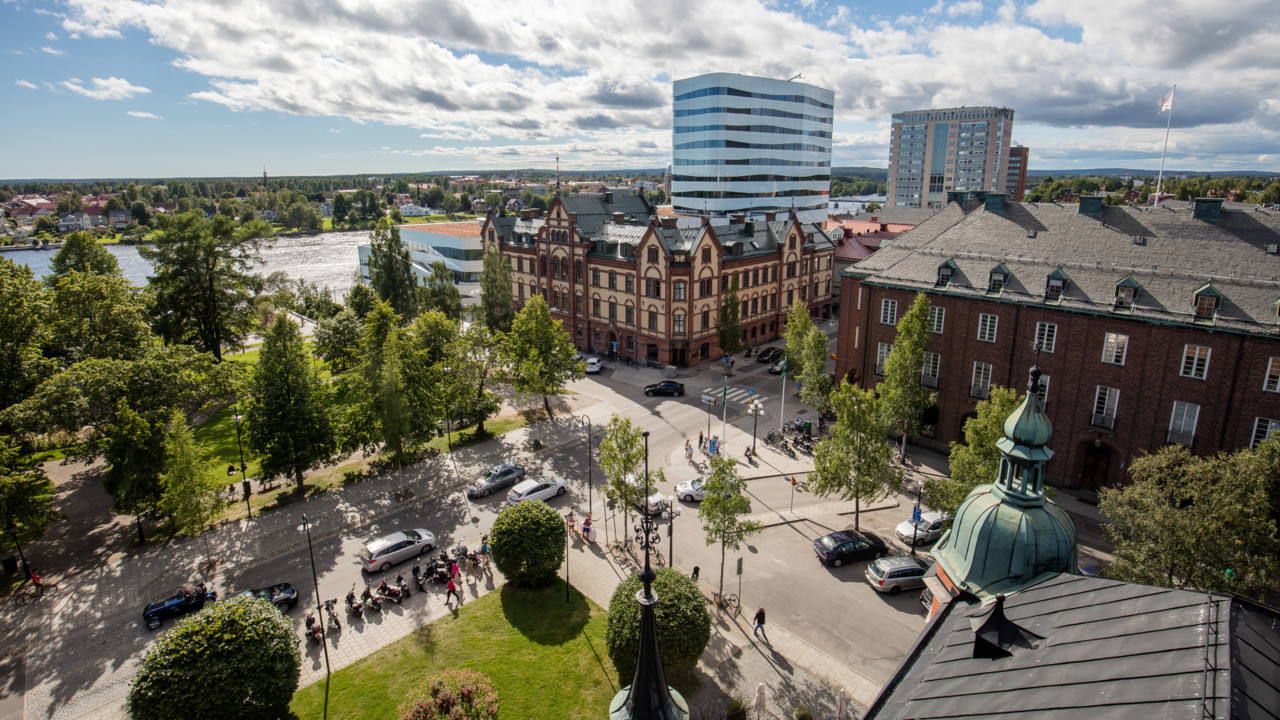I suspect that stricter measures will be implemented gradually if the virus spreads exponentially as in other countries, but not fast enough. Simply put, such authoritative and sharp moves at the democratic state level are not characteristic of the Swedish culture.

Belgrade-born Teodora Skrobonja lives in the north of Sweden, in the town of Umeå. She tells us what is currently happening in Sweden as the whole world struggles with the COVID-19 pandemic: “Despite the rising death toll, the government has refrained from adopting rigorous measures until the end of March and delegated almost all decisions to the Public Health Agency, universities and companies to deal with this problem on their own. They mostly shared tips and recommendations on how to behave responsibly. Regardless of the growing contagion, the society continues to strive to function as normally as possible, and in that it differs from everybody else, including the neighbouring Scandinavian countries, which at the very beginning of the epidemic, closed the borders and did everything to prevent the virus from spreading.”
What is currently happening? What kinds of measures, limitations and bans have been put in place?
On Friday, 27th March, it was decided to limit public gatherings to fifty people and to suspend domestic flights. Until then, the only measure was the ban on gatherings of over five hundred people, which led to the cancellation of sports matches, concerts and festivals. The recommendation was also to close schools for students over the age of 16, colleges and other adult education institutions and to implement online learning. However, the recommendation was not extended to include nurseries and elementary schools. The explanation was there was no health risk for children and that parents of those children had to continue working. Only now has the law been passed that the state will have the authority to close schools in extreme situations (which it doesn’t seem to be considered extreme yet, although over 3,000 people have been infected and over 100 have died).
However, not all schools for adults and colleges have been closed because no explicit ban was issued, only a recommendation. Borders are still open to the EU citizens, companies also selectively using an option of working from home, a decision that was left solely to them to make, while restaurants and cafes are still open, except for those which owners have decided to close their establishments. Some companies, such as Volvo, have discontinued production, leading to temporary layoffs. There is a fear that the virus will spread rapidly at ski resorts that the Swedes visit en masse during the Easter holidays. Interestingly, Sweden had a very gentle and easygoing approach until the death toll exceeded one hundred, while Serbia took draconian measures before registering the first casualty. Still, Prime Minister Löfven has said that we should not rule out the isolation of the Stockholm region if the epidemic continues to spread, while the political party Moderaterna proposes massive testing.
What was suggested regarding how citizens should behave?
The government has invested 75 million Swedish krona in disseminating the information about the virus, hygiene, precautions and rules of conduct to citizens. This information is also available on official websites. Prime Minister Stefan Löfven personally addressed the citizens and recommended that people who are considered at risk stay in their homes and not have guests over. He also advised young people to refrain from travelling. Again, apart from the new restrictions on gatherings and cancelled inland flights, everything mostly comes down to personal choice and conscientious behaviour of individuals. Some people have been practising social distancing but do not quarantine, for example. I also know of a few cases where people got sick and just stayed home despite the very serious symptoms because they did not want ‘to bother’ the ambulance service. They dealt with the illness alone, and of course, were not included in the statistical data about the number of sick people.
Some people are self-isolating as a matter of personal choice and are preparing for the upcoming crisis by stocking up on groceries just in case, while others trust the government fully as they think that the government knows what it is doing and are continuing to live as if nothing has happened. In Serbia, experts, epidemiologists and virologists are given more space and authority to lead the country through the crisis, but in here, that had already been done. The Public Health Agency and the team of the state epidemiologist, Anders Tegnell, have the biggest influence on decision- making. However, the Agency and the epidemiologist came under fierce criticism for the slow response and “gambling with human lives” by domestic experts from Umeå and Malmö, as well as from the neighbouring Norway and Denmark.

The Swedish society is peculiar in a way that many citizens certainly adhere to the recommendations and are taking care of themselves and others at their own accord, so there is need for the state to intervene and demand discipline. Many Swedes are self-isolating even though it’s not a norm. On the other hand, also many Swedes, including young people, rarely use social media, listen to the news or read newspapers, so, paradoxically they are less informed and aware of the seriousness of this disease than an average Serb. Finally, there is a small group of rebels, young people who even hold corona parties as a sign of protest (with some catching the virus at these parties) and a group of older people who are complaining and claiming that nobody has the right to order them to stay indoors.
However, I would add that the media reports about Covid-19 differently than in Serbia – although several tabloids, including Aftonbladet and Espresso, apply a dose of sensationalism to their reporting, other media outlets have been maintaining a very calm and neutral tone and are not adding to the panic. This country has not been confronted with any crisis for a long time, so the society is not accustomed to stress and panic, but at the same time, this leads to much slower response and ignoring the problem to a certain degree. People don’t even like to talk about Covid-19 much, except those who are active on social networks, because they just don’t like drama, and everyone individually decides how to behave.
We must also take into account a demographic factor that is much different from other European countries. In Sweden, which has no large households, except for immigrants, people usually live alone. Population density is very uneven, with Stockholm being the riskiest area, as well as Gothenburg and Malmö due to a larger population. Other places are much less populated, so the number of people in them is far smaller. Ten million people are spread over an extraordinarily large area, and I guess that’s why Covid-19 is currently spreading much more slowly in Scandinavia.
Again, if the moderate Swedish approach was applied in Serbia, for instance, I think the consequences would be very serious given that Serbia has a much smaller territory with high population density, larger households, more active social life and crowded public transportation in Belgrade, and also less capacity to fight the virus. The French people I teach have told me that they also had such a casual attitude towards the epidemic until people had to show in writing to the police their reasons for leaving their home. It remains to be seen how this will work in Sweden.
How did you organize your business activities during the pandemic?
My daily activities are more or less identical because I have been working remotely for a year and a half (I have been teaching business English to the French people, and my boyfriend, who is a Swede, has also been working remotely in IT for a couple of months), so my work has not changed. I spend my free time playing my instruments and streaming on Twitch, as well as playing video games, watching series … The only thing I used to do regularly outside my home was going to dance and Swedish language classes and rehearsing with a band which I don’t do anymore since Folkuniversitet, which holds adult courses, hasn’t changed its operations at all. It is still safe to go outdoors because there are generally very few passers-by, so I can go for a walk or run by the river.
What will you do first after the state of emergency is cancelled?
Sweden has not declared a state of emergency. I can only tell you what I would do if there was an apocalypse. I would move to the woods near the border with Norway where my boyfriend has a cottage on a lake and food supplies to last the next couple of years, and where there are no people at all.